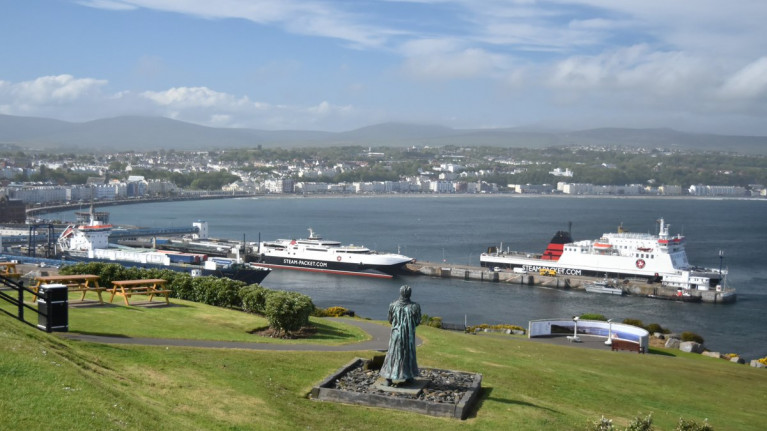Displaying items by tag: Ferry Repairs
Manx Ferry Ben-My-Chree Requires Repairs for 'At Least a Week'
A Manx ferry Ben-my-Chree will be out of action for 'at least a week' as it undergoes repair work to one of its propellers.
The Isle of Man Steam Packet Company says it sustained damage when entering Heysham harbour, and it'll go into dry dock on Tuesday.
After inspection by divers, as well as investigations by the manufacturers of the propeller control systems, it's been decided the repairs can't be carried out whilst the vessel is afloat.
Manx Radio understands the Ben-my-Chree only returned to Douglas at around 12:30 this morning.
It'll sail from Douglas to Falmouth dry dock on Tuesday, with a further inspection and assessment by specialists to take place there.
The ropax built in 1998 Afloat adds having sailed overnight from the Irish Sea is currently off the Cornish coast while at Falmouth anchorage.
#FerryRepairs – The Isle of Man Steam Packet Company has been informed by Italian shipbuilders, Fincantieri, manufacturers of the fin stabiliser which was damaged and removed in January, will be completed and ready for re-fitting for ro-pax Ben-my-Chree in June.
The 12,500 tonnes passenger and freight vessel sustained damage to one of its two stabilising fins during heavy weather at the start of the year. Following an inspection in late January, a decision was made to remove the affected fin and return Ben-my-Chree to service until the repaired unit was ready to be re-fitted.
The Steam Packet Company can confirm work to install the repaired fin will take place in a quiet period from 19-21 June and a revised sailing schedule will operate during this period.
The Manx ferry operator is contacting any passengers affected on these dates in the coming weeks and the fast-craft Manannan and freight ferry Arrow will provide sailings to Heysham and Liverpool.
Ben-my-Chree has effective stabilising efficiency with only one fin operational, and there is no impact on the vessel's ability to sail, nor to berth, safely.






























































